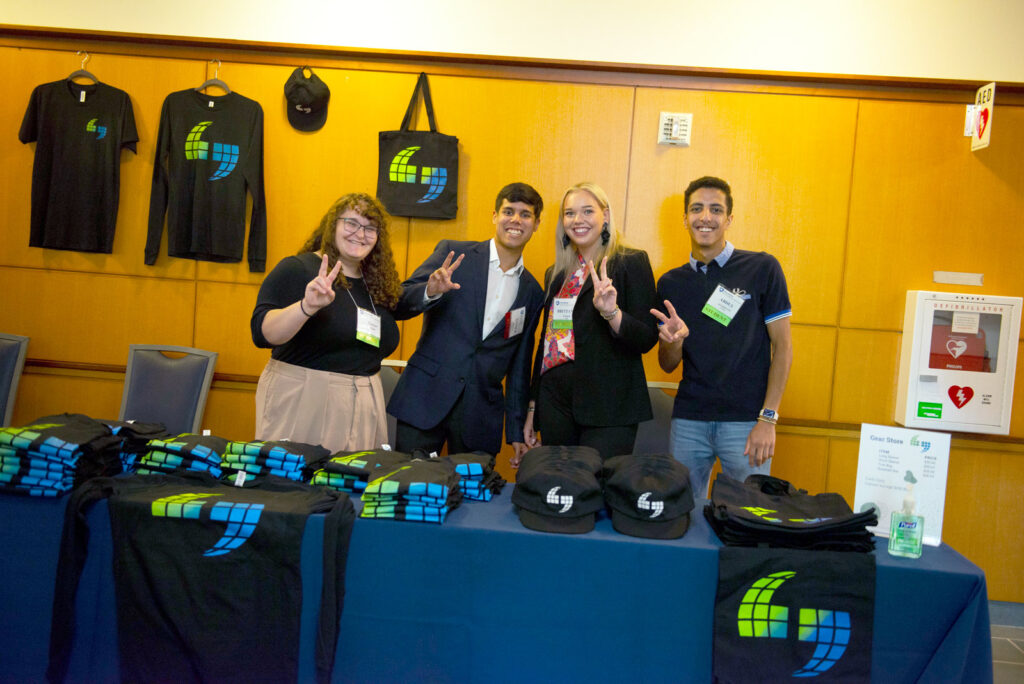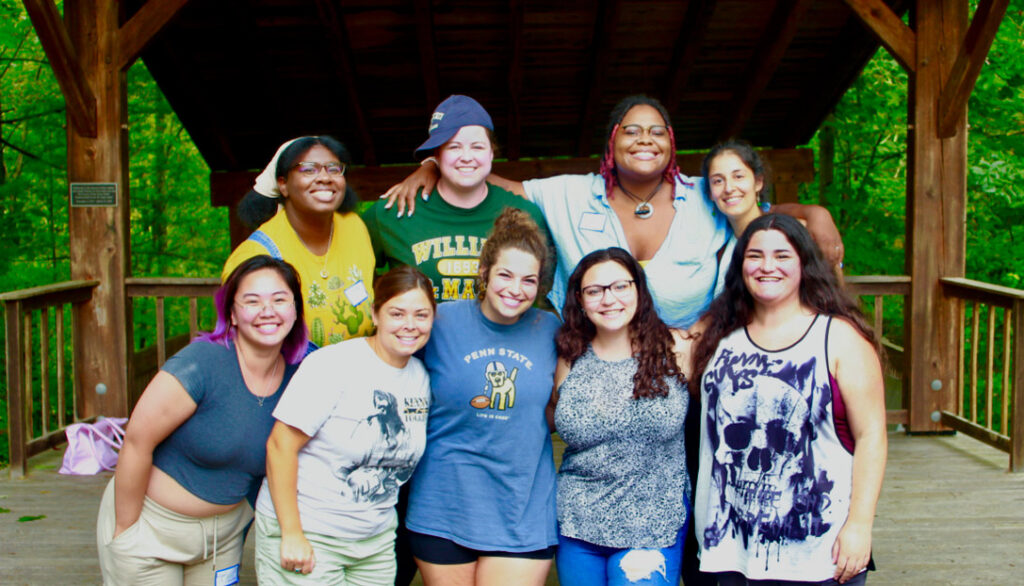We are a unique laboratory for engaged learning.
At World in Conversation, students from every discipline become practiced in real-world program delivery. We offer a supportive, collaborative and dynamic work environment that prepares students to be top candidates in their field.
Internships (for course credit or monetary stipend) are available to undergraduate and graduate students interested in fields ranging from operations, technology, logistics, communications and research. They communicate daily with our professional staff while also working with and mentoring their peers.

What follows is a brief overview of some of the dimensions of our learning laboratory offered to students.
The operations, logistics and technology team is the engine that puts small-group facilitation into action. Roles require individuals to be agile and meticulous, as well as to be able to marry numbers and data points with workflows and the needs of people.
Interns may:
- Act as the operations support person in the more than twenty dialogues that happen each day.
- Manage Participant Registration
- Administer and record Participant Attendance
- Provide in-dialogue Tech Support
Our student interns support the professional team who curate, write, analyze, and design materials to highlight what we do—activities that would remain invisible otherwise.
Interns may:
- Write, design, and publish assets for social media, annual reports and other marketing needs
- Develop messaging and templates for correspondence with internal and external audiences
- Update, maintain and possibly re-design website
- Design and order branded materials (gear, supplies, banners etc.)
Research assistants support the collection and timely analysis of qualitative and quantitative data. In the process, they develop an understanding for Grounded Theory research, learn how research informs strategic decisions of an organization and gain practical research experience.
Interns may:
- Review, sort and clean collected data
- Administer and study post-program data from nearly 20,000 participants annually
- Revise survey instruments and delivery methods with training and research teams
- Publish analyses and build reports
We’ve spent eleven years building international partnerships with colleagues who are eager to support and extend the power and potential of facilitated dialogue. Our Global Interns support smooth functioning of operations and logistics at our partner sites.
Interns may:
- Collaborate with nearly 20 site-coordinators across eleven international locations
- Sync facilitator and participant schedules across seven time zones and a variety of cultural and religious observances
- Ensure implementation of safety protocols for dialogues being conducted in high-risk locations
- Observe and report tailored needs of different international sites
WinC’s methodology is applied in SOC 119—a class on Race, Ethnicity and Culture. The class is currently live-streamed (with over 300,000 subscribers from over 170 countries) every Tuesday and Thursday afternoon (EST) at the class YouTube channel. The videos have generated over 160 million views in over 200 countries. The Stream Team is the force that runs the livestream and daily class operations. Roles require students to learn quickly and be adaptable to any situation.
Interns may:
- Operate cameras, direct the livestream or take class photos
- Edit videos for the class YouTube Channel
- Grade attendance assignments
- Reach out to class volunteers
Every facet of our training is meant to develop the mindset and skills needed to become a dialogue facilitator. This is truly a hybrid learning environment that pairs sociological thinking with communication technologies. Curriculum and practicum must pair together to create engaged learning. Students spend up to 70 hours in a given semester in dialogue facilitation practice.
Fun fact: Not only have our participants come from all of the colleges at University Park and most of the Commonwealth campuses, they also join us online from universities and local organizations around the world—in China, Iran, Afghanistan, Colombia, Brazil, Russia, Saudi Arabia, Iraq, Israel, the Palestinian Territories, Yemen, Germany, Italy, and Poland.
The operations, logistics and technology team is the engine that puts small-group facilitation into action. Roles require individuals to be agile and meticulous, as well as to be able to marry numbers and data points with workflows and the needs of people.
Interns may:
- Act as the operations support person in the more than twenty dialogues that happen each day.
- Manage Participant Registration
- Administer and record Participant Attendance
- Provide in-dialogue Tech Support
Comprised of faculty, staff and students, Task Forces use a Grounded Theory approach to collect data and analyze trends that point to the internal and cultural architecture of dialogue. In this open setting, students voice personal learning challenges, collaboratively refine strategies to address their most difficult dialogue obstacles, and creatively practice communication techniques. At any given point the center’s history, Task Forces study our evolving method as we are applying it in our dialogue initiatives.
Though they may be the least visible, they have their hands in everything from hardware to software, audio to video, videoconferencing to webmastering, live streaming to podcasting, social media to recording storage, staff and student training to creating and organizing media assets—as well as the everyday maintenance and troubleshooting of these complicated systems (both at the center and with our global partners).
Sociology 119 has been live streaming its class for the past four years with the help of students involved in the live streaming, post production, and online video distribution process.
Most of us have never experienced what it is to operate in a “non-homogenous” community or organization that honors and uplifts differences, not because doing so “looks good,” but because it is good. That unusual environment is what we are building here at World in Conversation. And like all things humans create, it is a work always in progress.
